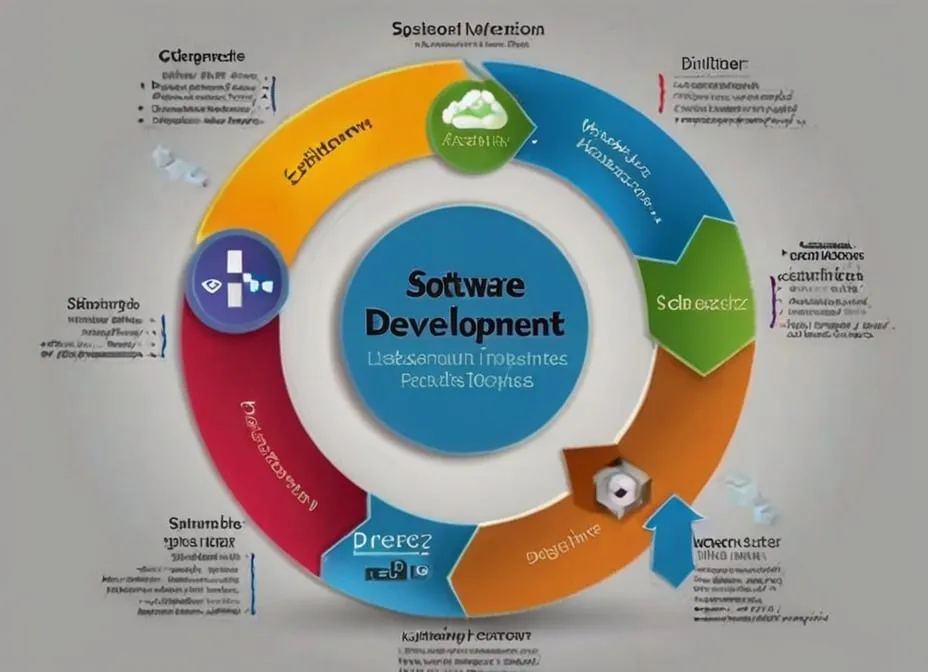Highest Paying Tech Jobs Without a Degree
Conquering Tech Without a College Degree: Top Lucrative Careers

The tech industry pulsates with innovation, offering a plethora of exciting and well-paying career paths. But what if you don't have a college degree? Fear not, aspiring tech enthusiasts! A traditional four-year degree isn't always the sole gateway to a fulfilling and lucrative career in technology.
This comprehensive guide unveils a treasure trove of high-paying tech jobs that don't necessitate a degree. We'll delve into why you might consider this path, and explore the essential skills to cultivate and equip you with valuable resources to launch your dream tech career.
Unveiling the Tech Industry's Hidden Gems: In-Demand Roles That Don't Require a Diploma

Shattering the Stereotype: Dispelling the Myth of the Degree-Obsessed Tech World
The tech industry has often been stereotyped as a realm dominated by individuals wielding prestigious computer science degrees. While a formal education undoubtedly offers a strong foundation, the reality is far more nuanced. Many tech companies are increasingly recognizing the value of raw talent, sharp problem-solving skills, and a passion for technology.
Here's why the tide is turning:
- Skills Gap: The tech industry is experiencing a relentless surge in demand for skilled professionals. Traditional education systems often struggle to keep pace with the rapid evolution of technology. Companies are acknowledging that exceptional skills and a demonstrable ability to learn can be just as valuable as a degree.
- Focus on Potential: Forward-thinking tech companies are placing greater emphasis on a candidate's potential and eagerness to learn. A strong work ethic, coupled with a willingness to constantly upskill, can be more indicative of future success than a static degree.
- Alternative Learning Paths: The landscape of tech education has undergone a dramatic transformation. Online courses, boot camps, and certifications provide individuals with the opportunity to acquire the necessary skills and knowledge without the time and financial commitment of a traditional degree.
Why Consider a Tech Career Without a Degree? Advantages and Considerations
There are several compelling reasons to consider a tech career path that doesn't require a degree:
- Faster Entry into the Workforce: You can potentially enter the workforce and start earning a competitive salary much sooner than if you were to pursue a four-year degree.
- Reduced Financial Burden: The cost of a college education can be a significant hurdle. Opting for alternative learning paths can save you a substantial amount of money.
- Focus on Specific Skills: You can tailor your learning to develop the exact skill set required for your desired tech role.
- Flexibility: Many online learning options offer flexible schedules, allowing you to learn at your own pace and around your existing commitments.
However, it's important to consider some key factors:
- Self-motivation is Crucial: Without the structure of a traditional degree program, self-discipline and a strong work ethic are essential for success.
- Continuous Learning is Paramount: The tech industry is constantly evolving, so a commitment to lifelong learning is necessary to stay relevant.
- Experience Might Be Required: While a degree might not be mandatory, some entry-level tech positions may prioritize relevant experience.
Skills Take Center Stage: The Crucial Assets for Success in Tech
Regardless of your educational background, possessing the following skills will significantly enhance your prospects in the tech industry:
- Technical Skills: This varies depending on the specific role, but could encompass programming languages, software development methodologies, cloud computing, or cybersecurity principles.
- Problem-Solving Skills: The ability to analyze complex challenges, identify root causes, and develop innovative solutions is highly sought-after in tech.
- Communication Skills: Effective communication, both written and verbal, is essential for collaborating with colleagues, explaining technical concepts to non-technical audiences, and conveying ideas persuasively.
- Critical Thinking Skills: The ability to think critically, analyze data, and make sound judgments is crucial for making informed decisions and navigating complex technical problems.
- Adaptability and Lifelong Learning: The tech industry is constantly evolving. A willingness to adapt, embrace new technologies, and continuously learn is vital for long-term success.
By honing these core skills, you can position yourself for a thriving career in the exciting world of tech, even without a traditional college degree.
Charting Your Course: Resources and Tools to Launch Your Tech Career
The path to a successful tech career without a degree is paved with valuable resources and tools:
- Online Learning Platforms: Numerous online platforms offer comprehensive courses, tutorials, and certifications in various tech fields. Examples include Coursera, edX, Udemy, and Udacity.
- Bootcamps: These intensive programs provide a fast-tracked approach to acquiring job-ready skills in specific tech domains like web development, data science, or cybersecurity.
- Open-Source Projects: Contributing to open-source projects allows you to gain practical experience, build your portfolio, and network with other developers in the tech community.
- Tech Meetups and Conferences: Attending these events provides opportunities to learn from industry experts, network with potential employers, and stay abreast of the latest tech trends.
By leveraging these resources and demonstrating a proactive approach to learning, you can equip yourself with the necessary skills to thrive in the dynamic tech landscape, even without a formal degree.
Powering the Digital Age: High-Paying Tech Jobs That Don't Demand a Degree
The tech industry offers a dazzling array of well-compensated careers that don't necessitate a traditional college degree. Here, we'll delve into some of the most in-demand and lucrative roles you can pursue, armed with the right skills and unwavering determination.

Web Development Wizards: Front-End and Back-End Developers
Web development lies at the heart of the digital world, and skilled developers are in high demand. This field encompasses two primary specializations:
Front-End Developers: The Architects of User Experience
Front-end developers are the creative masterminds behind the user interface (UI) – the visual elements and interactive features users experience when visiting a website or web application. They wield a potent arsenal of skills, including:
- * HTML, CSS, and JavaScript: These are the fundamental building blocks of web development, allowing front-end developers to structure content, style web pages, and create dynamic user interactions.
- * Front-End Frameworks: Frameworks like React or Angular streamline the development process and expedite the creation of complex web applications.
- * Responsive Design: Ensuring websites seamlessly adapt to different screen sizes (desktop, mobile, tablet) is crucial in today's mobile-first world.
Back-End Developers: The Masterminds Behind the Scenes
Back-end developers are the architects of the server side – the invisible engine that powers websites and web applications. They ensure smooth data processing, interaction with databases, and overall functionality. Their skillset includes:
- * Programming Languages: Languages like Python, Java, or Ruby on Rails are instrumental in building the core logic and functionality of web applications.
- * Databases: Understanding how to store, manage, and retrieve data efficiently from databases is essential for back-end development.
- * APIs (Application Programming Interfaces): APIs enable communication between different applications and services, and back-end developers play a crucial role in their creation and integration.
With dedication to learning these in-demand skills, both front-end and back-end developers can carve a lucrative path in the ever-evolving world of web development.
Data Whisperers: Data Analysts and Business Intelligence Specialists
In today's data-driven world, the ability to extract meaning from vast amounts of information is paramount. Here's where data analysts and business intelligence specialists step in:
Data Analysts: Unearthing Insights from the Digital Goldmine
Data analysts are the detectives of the digital age. They use their analytical prowess to collect, clean, analyze, and interpret data. They leverage various tools and techniques to uncover hidden patterns, trends, and insights that inform business decisions.
Here are some key skills for data analysts:
- * SQL: This powerful query language allows analysts to retrieve and manipulate data from relational databases.
- * Data Visualization Tools: Tools like Tableau or Power BI enable analysts to transform data into compelling visualizations, making complex information readily understandable.
- * Statistical Analysis: A solid grasp of statistical concepts helps analysts identify trends, measure correlations, and draw meaningful conclusions from data.
Business Intelligence Specialists: Translating Data into Actionable Strategies
Business intelligence specialists take the insights gleaned by data analysts and translate them into actionable strategies for businesses. They communicate these insights to stakeholders across various departments, helping organizations make data-driven decisions to improve efficiency, profitability, and overall performance.
Business intelligence specialists require a blend of analytical skills and strong communication abilities:
- * Data Storytelling: Effectively communicating complex data insights in a clear, concise, and compelling way is crucial for influencing business decisions.
- * Business Acumen: Understanding the intricacies of business operations allows business intelligence specialists to tailor their data analysis and recommendations to address specific business challenges.
- * Project Management Skills: Business intelligence projects often involve collaborating with various teams, so strong project management skills are essential for successful implementation.
By mastering these skills, data analysts and business intelligence specialists can unlock the power of data and propel businesses to new heights.
Cybersecurity Guardians: Information Security Analysts and Penetration Testers
As our reliance on technology grows, so do the threats posed by cybercriminals. Cybersecurity professionals play a vital role in safeguarding sensitive data and protecting critical infrastructure. Here are two in-demand specializations:
Information Security Analysts: Defending the Digital Frontier
Information security analysts are the frontline soldiers in the war against cybercrime. They monitor network activity, detect security vulnerabilities, and implement measures to prevent cyberattacks. Their skillset encompasses:
- * Security Technologies: Understanding firewalls, intrusion detection systems, and other security tools is essential for identifying and mitigating cyber threats.
- * Security Frameworks: Frameworks like the NIST Cybersecurity Framework provide a structured approach to managing cybersecurity risks.
- * Incident Response: Information security analysts need to be prepared to respond swiftly and effectively to security incidents, minimizing damage and restoring normal operations.
Penetration Testers: The Ethical Hackers Who Fortify Systems
Penetration testers, also known as ethical hackers, employ their hacking skills for good. They simulate cyberattacks to identify vulnerabilities in an organization's systems before malicious actors can exploit them. Their skillset includes:
- * Ethical Hacking Techniques: Penetration testers possess a deep understanding of hacking methodologies and tools, allowing them to uncover weaknesses in security defenses.
- * Vulnerability Assessment and Penetration Testing (VAPT): VAPT involves a systematic process of identifying, exploiting, and reporting vulnerabilities in computer systems.
- * Offensive Security Tools: Penetration testers leverage specialized tools to scan for vulnerabilities, gain unauthorized access, and simulate real-world cyberattacks.
By honing these specialized skillsets, information security analysts and penetration testers can play a critical role in safeguarding our digital world.
The Networking Nexus: Network Engineers and System Administrators
The smooth flow of information within and between organizations hinges on robust networks and well-maintained IT infrastructure. Here's where network engineers and system administrators come into play:
Network Engineers: Building the Bridges of the Digital World
Network engineers design, build, maintain, and troubleshoot computer networks. They ensure efficient data transmission, reliable network connectivity, and overall network performance. Key skills for network engineers include:
- * Networking Protocols: A thorough understanding of core networking protocols like TCP/IP is essential for designing and managing efficient networks.
- * Routing and Switching: Network engineers configure routers and switches to direct data packets along the optimal paths within a network.
- * Network Security: Integrating security measures into network design is crucial for protecting against cyber threats.
System Administrators: The Stewards of IT Infrastructure
System administrators are the custodians of an organization's IT infrastructure, including servers, desktops, and software applications. They ensure smooth operation, troubleshoot technical problems and maintain system security. Here are some important skills for system administrators:
- * Operating Systems: In-depth knowledge of operating systems like Windows, Linux, or macOS is essential for managing and troubleshooting system issues.
- * Active Directory/LDAP: These directory services manage user accounts, permissions, and access control within a network.
- * Cloud Computing: Understanding cloud platforms like Amazon Web Services (AWS) or Microsoft Azure is becoming increasingly important for system administrators.
By mastering these skills, network engineers and system administrators ensure the smooth operation of the digital backbone that underpins modern organizations.
Creative Tech Masters: UX/UI Designers and Digital Marketing Specialists
Technology is not just about ones and zeros; it's about creating engaging experiences for users. Here, we explore two exciting roles that blend creativity with technical expertise:
UX/UI Designers: Crafting User-Centered Experiences
UX/UI designers are the artists and architects of the digital world. They focus on both the user experience (UX) – how users interact with a product or service – and the user interface (UI) – the visual elements and functionalities that users see and interact with.
Here are some key skills for UX/UI designers:
- * User Research: Understanding user needs, behaviors, and pain points is crucial for designing user-centric interfaces.
- * UI/UX Design Tools: Mastering design tools like Figma, Adobe XD, or Sketch allows designers to create visually appealing and intuitive user interfaces.
- * Design Thinking: This human-centered approach to problem-solving helps designers create solutions that are not just aesthetically pleasing, but also meet the needs of users.
Digital Marketing Specialists: Reaching Customers in the Digital Marketplace
The digital landscape offers a vast array of channels to connect with customers. Digital marketing specialists leverage these channels to promote products, services, and brands online. Their skillset encompasses:
- * Content Marketing: Creating compelling content (blog posts, social media posts, videos) that engages target audiences is a cornerstone of digital marketing.
- * Search Engine Optimization (SEO): Understanding how search engines work and optimizing websites to rank higher in search results drives organic traffic and brand visibility.
- * Social Media Marketing: Engaging with customers and building communities on social media platforms is essential for successful digital marketing campaigns.
- * Analytics and Reporting: Measuring the effectiveness of marketing campaigns and translating data into actionable insights is crucial for optimizing strategies.
By cultivating these creative and technical skills, UX/UI designers and digital marketing specialists can play a vital role in shaping how users experience brands and products in the digital age.
Bridging the Gap: Effective Strategies to Land Your Dream Tech Job Without a Degree
Now that you've explored some of the exciting tech career paths available without a degree, it's time to equip yourself with the tools and strategies to land your dream job:

Building Your Skill Arsenal: Acquiring the Necessary Technical Expertise
Embrace Self-Learning: Free and Paid Online Resources
The internet is a treasure trove of free and paid resources for learning tech skills. Here are some popular options:
- Massive Open Online Courses (MOOCs): Platforms like Coursera, edX, and Udacity offer a wide range of tech courses, some with certifications upon completion.
- Online Tutorials: Websites like W3Schools, Khan Academy, and freeCodeCamp offer interactive tutorials and coding challenges to learn programming languages and web development concepts.
- YouTube Channels: Numerous tech YouTubers create high-quality tutorials and project walkthroughs on various tech topics.
Bootcamps and Certifications:
Bootcamps offer intensive, immersive programs designed to equip you with job-ready skills in specific tech fields like web development, data science, or cybersecurity. Certifications can validate your skills and knowledge to potential employers.
Remember: Consistency is key! Dedicate regular time to learning and practicing your chosen tech skills.
Building a Stellar Portfolio: Showcasing Your Skills and Potential
A strong portfolio is your chance to showcase your abilities and impress potential employers. Here's how to build yours:
Contribute to Open-Source Projects:
Open-source projects allow you to gain practical experience, collaborate with other developers, and demonstrate your coding skills on a real-world project.
Personal Projects:
Develop personal projects that showcase your creativity, problem-solving skills, and technical expertise. These projects could be websites, mobile apps, data analysis projects, or anything that demonstrates your abilities.
Focus on Quality Over Quantity:
It's better to have a few well-polished projects than a large collection of unfinished ones.
Your portfolio should be visually appealing, easy to navigate, and demonstrate the value you bring to the table.
The Power of Networking: Connecting with Tech Professionals
Building connections within the tech industry can open doors and expose you to potential job opportunities. Here are some ways to network:
Attend Tech Meetups and Conferences:
These events are fantastic platforms to learn from industry experts, network with potential employers, and stay up-to-date on the latest tech trends.
Leverage Online Platforms: Build Your Digital Presence on LinkedIn
Create a compelling LinkedIn profile that highlights your skills, experience (even if it's not traditional work experience), and relevant projects. Join tech communities and engage in discussions to showcase your expertise and passion for technology.
Don't be afraid to connect with people in your desired tech field, even if they're not directly involved in hiring. Informational interviews can be a great way to learn more about specific roles, companies, and career paths.
Remember: Networking is about building genuine connections, not just collecting contacts. Be authentic, show your interest in the industry, and offer value whenever possible.
Crafting a Compelling Resume and Cover Letter: Highlighting Your Skills and Value
Your resume and cover letter are your first impression to potential employers. Here's how to make them shine:
Focus on Skills, Not Degrees:
Since you might not have a traditional degree, emphasize the skills you've acquired through online courses, boot camps, personal projects, or even volunteer work.
Quantify Your Achievements:
Whenever possible, quantify your accomplishments with numbers and metrics. For example, instead of simply saying "increased website traffic," state "increased website traffic by 20% through SEO optimization."
Tailor Your Resume and Cover Letter for Each Position:
Don't rely on a generic resume. Tailor your resume and cover letter to highlight the specific skills and experience mentioned in the job description.
Proofread Carefully:
Typos and grammatical errors can create a negative impression. Proofread your resume and cover letter meticulously before submitting them.
By crafting compelling application materials that showcase your skills and value proposition, you can increase your chances of landing an interview, even without a traditional college degree.
Conclusion: Owning Your Future in Tech - No Degree Required
The tech industry is brimming with exciting opportunities, and a college degree is no longer the sole gateway to a fulfilling and lucrative career path. By equipping yourself with the necessary skills, building a strong portfolio, and actively networking, you can carve your path to success in the ever-evolving world of technology. Remember, passion, dedication, and a continuous learning mindset can be just as valuable as a degree in propelling you toward a thriving career in tech.
So, are you ready to embark on your tech adventure? With the right approach and unwavering determination, you can conquer the tech industry, degree or not.
FAQs: Frequently Asked Questions About Tech Careers Without a Degree
Q: Can I get a high-paying tech job without a degree?
A: Absolutely! While some tech roles might prefer candidates with degrees, many companies are increasingly recognizing the value of skills and experience. By demonstrating a strong skillset and a passion for technology, you can make yourself a competitive candidate for various high-paying tech jobs.
Q: What are the biggest challenges of pursuing a tech career without a degree?
A: Self-motivation and discipline are crucial as you'll be responsible for directing your learning. Additionally, some entry-level positions might prioritize relevant experience. However, with dedication and a proactive approach, you can overcome these challenges.
Q: How long will it take to learn the necessary skills for a tech job?
A: The timeframe depends on the specific role and your prior experience. Some basic skills can be acquired in a few months, while more complex skills might take a year or more. The key is to be consistent with your learning and actively apply your knowledge.
Q: Are there any resources to help me find tech jobs without a degree?
A: Yes! Many online job boards cater specifically to tech positions. Additionally, some companies have sections dedicated to showcasing job openings that don't require a degree. Networking with professionals in your desired field can also be a great way to discover job opportunities.
Q: Is it worth getting a degree if I want a tech career?
A: While a degree can be beneficial, it's not necessarily a requirement for a successful tech career. If you're passionate about tech and are a self-motivated learner, you can achieve great things without a formal degree. However, if you prefer a structured learning environment or value the networking opportunities offered by a university, then a degree might be a good choice for you. Ultimately, the decision depends on your learning style and career goals.
By following these tips and leveraging the wealth of resources available, you can unlock your full potential and carve a successful path in the exciting world of tech, regardless of whether you have a college degree or not.











